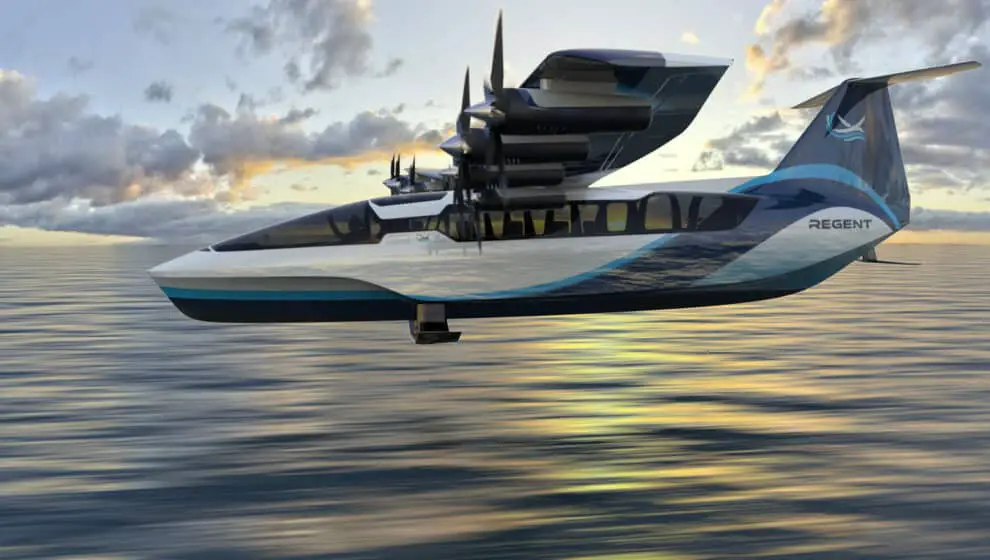Overcoming this recent barrier means that better, cheaper, and more sustainable air travel is on the horizon.
Key details
Today, Regent Craft announced it has received an Approval in Principle from Bureau Veritas Marine & Offshore for its 12-passenger, fully electric, wing-in-ground effect seaglider.
The Approval in Principle culminated in a 10-month, third-party engagement that ultimately determined that the aircraft and the technology driving it are viable and sustainable and able to move forward.
The Approval in Principle will be followed by a design appraisal process, a series of technical studies that are now underway that will allow the implementation of the seaglider’s design and operation, according to Regent.
This is an important certification milestone for the company as it marks the beginning of commercial seaglider operations.
Why it’s important
It’s a new, breakthrough technology so its viability needed to be determined.
The goal of Regent Craft is to reduce the cost and hassle of regional transportation between coastal cities. It designed a 100-person, all-electric seaglider that will be zero-emission and half the cost to operate as a traditional aircraft. The seaglider is an all-electric plane that flies just above the water’s surface and couples the speed of air travel with the operating cost of a boat.
It will fly routes up to 180 miles with existing battery technology and routes up to 500 miles with next-generation batteries. So it’s ideal for short, regularly scheduled routes—such as between Hawaiian islands or coastal cities like New York and Boston, Los Angeles and San Diego, or Miami and Fort Lauderdale.
Seagliders would depart from harbors on hydrofoils—technology you might see on eFoil surfboards or America’s Cup racing yachts.
Backing up a bit
Regent is a startup backed by many industry-leading financiers such as Thiel Capital, Mesa Air Group, entrepreneur Mark Cuban, Y Combinator, Founders Fund, Caffeinated Capital, and Fitbit founder James Park. The company has more than $7 billion in sales booked from airlines and ferry companies, including firm deposits for the first seaglider deliveries.
Regent is working with governing bodies of the U.S. Coast Guard and the FAA to ensure it can operate safely at low altitudes, particularly in crowded harbors and during inclement weather. Assuming it earns regulatory approval, Regent is on pace for the first flight of their quarter-scale prototype in late 2022.

